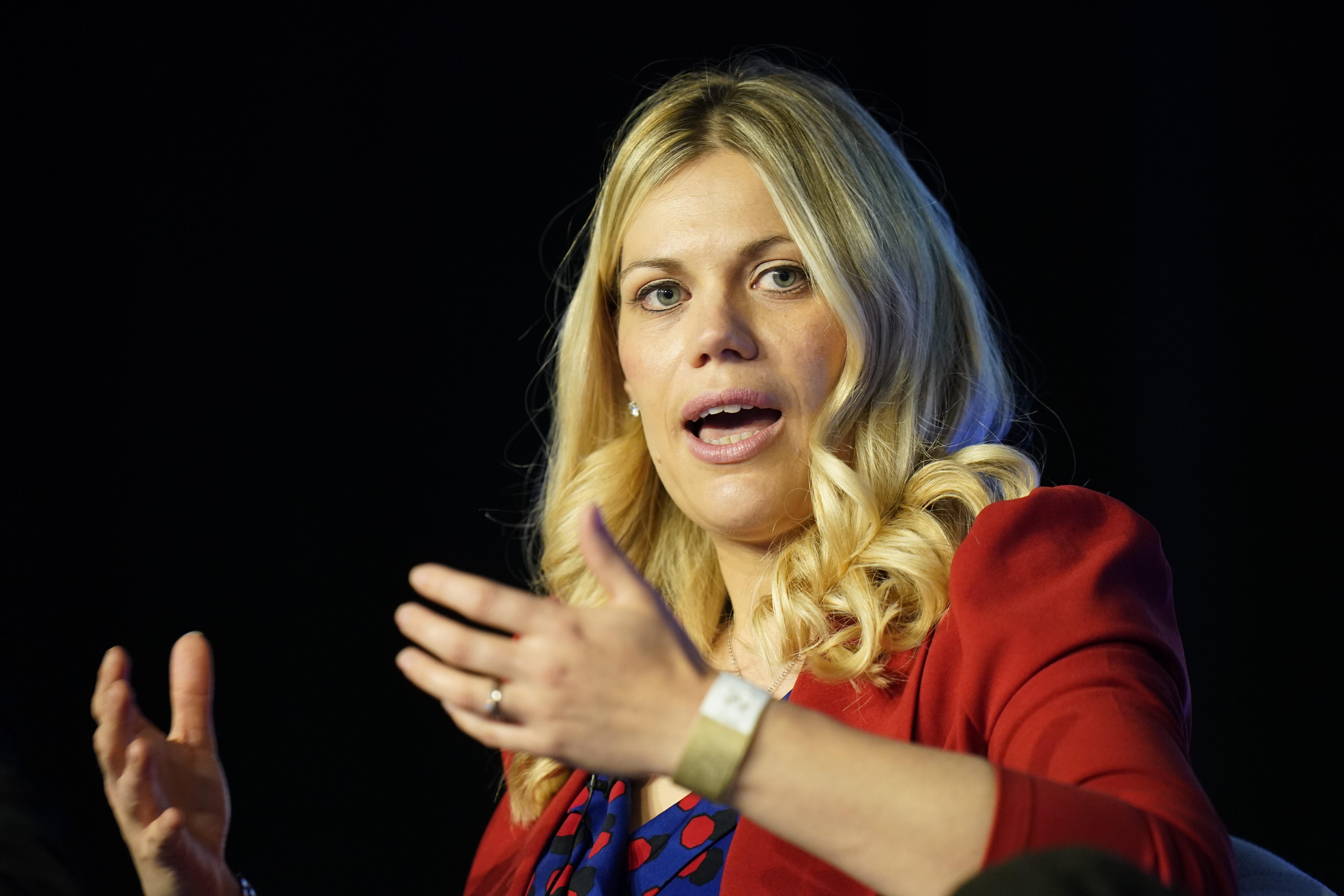Children should have sex education from the age of three, says Everyday Sexism founder
Laura Bates said there was ‘great evidence’ advocating for ‘age-appropriate sex education from the beginning’
Your support helps us to tell the story
From reproductive rights to climate change to Big Tech, The Independent is on the ground when the story is developing. Whether it's investigating the financials of Elon Musk's pro-Trump PAC or producing our latest documentary, 'The A Word', which shines a light on the American women fighting for reproductive rights, we know how important it is to parse out the facts from the messaging.
At such a critical moment in US history, we need reporters on the ground. Your donation allows us to keep sending journalists to speak to both sides of the story.
The Independent is trusted by Americans across the entire political spectrum. And unlike many other quality news outlets, we choose not to lock Americans out of our reporting and analysis with paywalls. We believe quality journalism should be available to everyone, paid for by those who can afford it.
Your support makes all the difference.Laura Bates, the founder of the Everyday Sexism Project, has called for sex education for children to start from the age of three.
Bates, 37, founded the Everyday Sexism project in 2012, when she was 25, inviting women on social media to detail sexist encounters they’d had. She also wrote the books Men Who Hate Women and Fix the System, Not the Women.
Earlier this month, prime minister Rishi Sunak was met with a backlash over plans to ban all sex education in primary schools until year five. Lessons would then focus simply on conception and birth, with no explicit discussions of sexual acts until they are 13 and over, according to reports.
Domestic violence, coercive control and sexual violence would also not be discussed until children reach 13 under the guidance, due to be announced by education secretary Gillian Keegan.
Children would also not be taught about contraception, sexually transmitted infections, and abortion until age 13.
Speaking about the renewed debate around the issue at Hay Festival, during a panel chaired by The Independent’s editor in chief Geordie Greig, Bates said there is “great evidence” advocating for “good quality, age-appropriate sex education from the beginning”.

When Greig asked if she meant sex education should be available for children as young as three, Bates replied: “Absolutely. Now, that might sound controversial, right?
“And that’s because people go, ‘You can’t talk to a three-year-old about sex, but when you send a three-year-old to nursery and you say, ‘Don’t hit other children,’ nobody goes, ‘You can’t talk to them about violence,’ because obviously that’s an age-appropriate way to explain something.”
She added: “So in the same way, from the age of three, you’re going to teach a child that their body is their body. They might well experience sexual abuse, and that is a huge, fundamental issue in this. You’re teaching them about body autonomy, you’re teaching them that you make choices about your body.
“You can teach them about consent and about respect for others in ways that of course don’t involve in any way talking about sex. But you’re putting in place the building blocks of those ideas.”

Bates clarified that she is not advocating for “sex education below the age of nine involving teaching children how to have sex”, adding “but you can, in an age-appropriate way, be teaching issues that are really relevant in terms of consent. And then as they get a little bit older, you’re teaching them accurate names for body parts.
“We know, from repeated research, that children who experience abuse, who haven’t been taught the correct anatomical names for body parts, aren’t able to describe what’s happening.”
She continued: “When we shroud this area in shame and secrecy, all we do is help abusers.”
Bates warned against the topic of sex education being used as a “political football”.
“The idea that there’s a problem in schools with sex education came from a single Conservative MP,” she said, referring to Miriam Cates, MP for Penistone and Stocksbridge.
“She stood up in parliament and, as far as I can tell, invented things – she said children in school were being taught to choke each other during sex and taught that there were 72 genders. When she was then contacted by journalists to back this up with any evidence at all, she couldn’t.”

Bates said that sex education helps young people as it means they will tend to have sex for the first time at a later age, it reduces STIs and reduces pregnancy.
It is more important now than ever, she argued, because “80 per cent of children by the age of 18 have seen sexually violent porn. So if we’re not giving them other information about what sex is, that will fill the gap.”
On how she envisions effective sex education being taught in schools, Bates said: “What’s really important is that we don’t silo it. We don’t see it as something that’s done in one lesson a week or one assembly and it’s tick box. We need a whole school approach.”
She pointed to the issue of not having a national database of sexual harassment and violence in schools, and the fact that uniform policy in many schools sees girls sent out of the classroom for “their skirts being too short”.
“This tells girls: ‘Your prepubescent body is powerful and dangerous, and it’s your job to cover it up and for your education to be disadvantaged, not for the boys to be taught about respect and about consent and about respectful relationships,’” she said.
Bates also urged school leaders to look at the curriculum, and ensure that children study more texts written by women.
Hay Festival continues until 2 June; hayfestival.com

Join our commenting forum
Join thought-provoking conversations, follow other Independent readers and see their replies
Comments